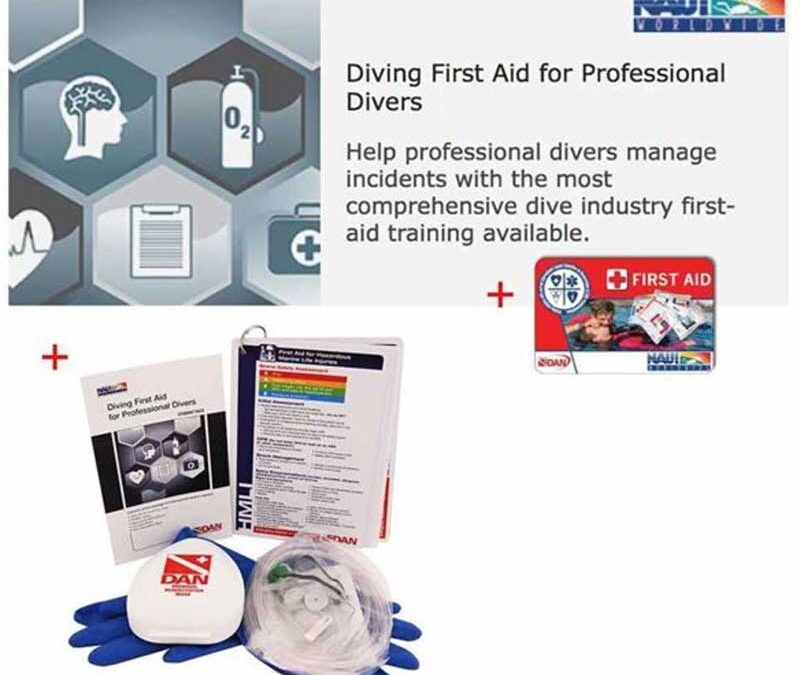If you are a professional diver, it is crucial to undergo Diving First Aid and CPR (Cardiopulmonary Resuscitation) training to ensure your safety and the safety of others in emergency situations. Here are some key points to consider:
Choose a Recognized Training Program:
Select a reputable Diving First Aid training program that is recognized by organizations such as the American Heart Association (AHA), the Red Cross, or an equivalent international certification body. Look for courses that specifically include water-related scenarios or are adapted for aquatic environments.
Basic First Aid Skills:
Learn how to assess and manage injuries commonly associated with diving, such as cuts, bruises, or decompression sickness.
Understand how to use a first aid kit and administer basic first aid techniques.
CPR Training:
Master both adult and infant CPR techniques, as emergencies can involve individuals of all ages.
Practice hands-only CPR for adults and traditional CPR with breaths for infants and children.
Be familiar with the use of automated external defibrillators (AEDs) if available.
Water-Related Emergency Scenarios:
Gain knowledge about specific water-related emergencies that divers may encounter, such as near-drowning incidents, hypothermia, or marine life injuries.
Understand how to perform rescue breathing in water and other water-specific rescue techniques.
Stay Current:
Regularly renew your First Aid and CPR certifications to ensure that you are up-to-date with the latest techniques and guidelines.
Stay informed about any advancements or changes in protocols related to water safety and first aid.
Practice Regularly:
Practice your skills regularly, both in and out of the water, to maintain confidence and efficiency in responding to emergencies.
Emergency Action Plan:
Develop and familiarize yourself with an emergency action plan for diving scenarios, including communication strategies and coordination with emergency services.
Communication Skills:
Develop effective communication skills to relay information clearly in high-stress situations. This is particularly important when guiding or assisting other divers.
Consider Specialty Courses:
Depending on your diving focus (e.g., deep-sea diving, cave diving), consider taking additional specialty courses that address the unique challenges associated with those environments.
Medical Fitness:
Ensure that you are in good physical condition for diving and are aware of any medical conditions that may affect your ability to respond effectively in emergencies.
By undergoing comprehensive First Aid and CPR training, you will be better prepared to handle emergencies and contribute to a safer diving environment for yourself and those around you.
If you are a new diving professional, or have been one for a while now, and you need to have First Aid and CPR training as a job requirement, call us today at 954.406.0181 to schedule your training. Check out the “COURSES” page on our website and sign up with us today!

